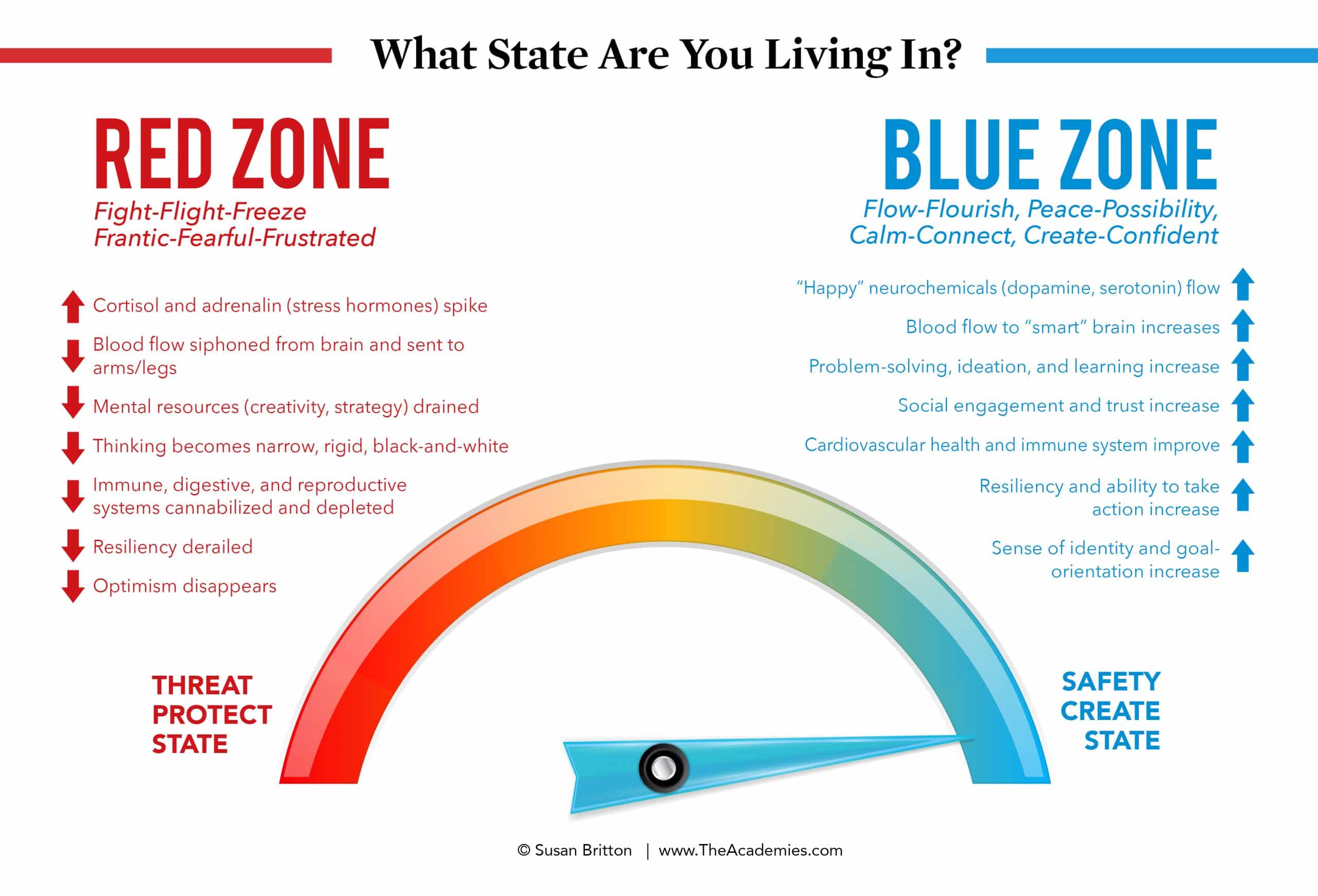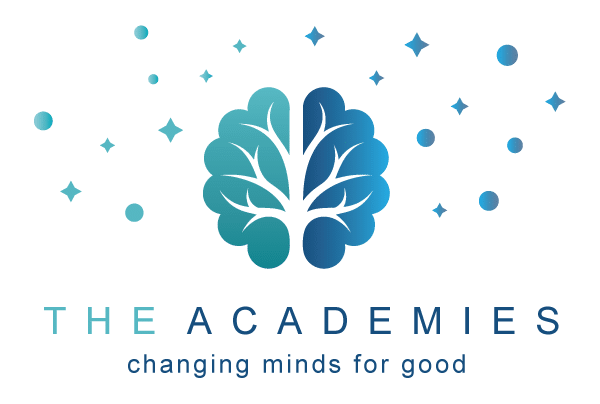Changing Minds, For Good: The Neuroscience Advantage in Coaching
Susan Britton, MCC
A neuroscience-based approach to coaching gives you an advantage in supporting connection, creativity, confidence, and momentum with your clients. Just as doctors have scalpels, painters have brushes, and mechanics have wrenches, coaches have tools.
These tools start with the ICF Core Coaching Competencies. They are powerful and effective as we embody and express them. In addition, when the ICF competencies are paired with a brain-friendly approach (aka a neuroscientific approach), they can bring exponential leverage for change.
Coaching and Neuroscience
As we know, coaching is like no other discipline. In a respectful partnership of equals, coach and client connect in a thought-provoking, creative manner to unleash CHANGE:
- The client’s wisdom is tapped,
- Insights emerge,
- Energizing goals are clarified,
- Resistance, paradoxes, and ambiguities are navigated,
- Solutions for challenges materialize, and
- Momentum grows or even snowballs.
Change that was previously elusive is now claimed. The person being coached experiences the clarity and confidence to move forward in a meaningful and strengths-based manner.
Neuroscience Complements Coaching
Neuroscience is a perfect complement to coaching. Why? Because change begins on the inside. Literally! It involves formation of new neural circuits in the brain (aka neuroplasticity) and intentional balancing of the neurochemical cocktail that influences mood, which, in turn, affects thinking.
Simply put, the change our coaching clients seek requires an inside change in Neural Circuitry & Chemistry.
- Neural Circuitry is first influenced by early life experiences. The presence or absence of positive relational experiences—and the sense of safety or threat we felt as a result—impacts the development of neural circuitry. Neural circuitry is also reinforced throughout our lives with repetition. The more we think a certain thought, the stronger our beliefs. The more we repeat a certain behavior, the more ingrained our habits. When we begin to think new thoughts and repeat new behaviors, neuroplasticity occurs.
- Neural Chemistry represents the mix of neurotransmitters and electrical charges in our brain and body. Serotonin, dopamine, oxytocin, cortisol, and more create a neurochemical cocktail associated with emotions. These emotional states can fluctuate from calm and curious (reflective), to alarmed and concerned (responsive), to fearful and anxious (reflexive), or even terror (frozen). Each state can have a different combination and predominance of neurotransmitters, which also impact other organs and their functions (heart rate, vagal tone, respiration rate, skin temperature, etc.).
If you’d like to dig deeper into these details, explore some of the links throughout this article. If you just want the basics, good news! You don’t need to be a neuroscientist to be a great coach—just like you don’t need a degree in nutrition to be healthy, nor an understanding of RF waves to use your cell phone. Make good food choices, or get closer to the cell tower for a clear signal, and you’ll succeed.
Likewise, as a neuroscience-informed coach, your understanding of the basics of how Neural Circuitry & Chemistry influence change will give you an advantage in creating the “inside” conditions for change.
To understand further how neuroscience supports the ICF Core Competencies, consider the framework of Red Zone | Blue Zone.
Red Zone | Blue Zone
The Red Zone | Blue Zone framework is The Academies foundational tool for understanding how our internal circuitry and chemistry affects our experienced world. The brain is the key organ that interprets whether people or situations feel threatening or safe. Neuroscience helps us recognize that, when it comes to achieving change, our brain either works FOR us, or AGAINST us:
- For Us: When the brain works for us, we are at our best. The rest-digest system is predominant (the parasympathetic nervous system). This system brings heart rate and blood pressure to healthy levels, nurtures immune and digestive systems, and restores cortisol levels to baseline. Importantly, positive affect influences thinking to become broader and more creative so that we can be more strategic and proactive.
- Against Us: When the brain works against us, we get emotionally hijacked. The body’s stress system takes over (the sympathetic nervous system), spiking us with extra cortisol, adrenaline, and other neurotransmitters. In this fight-flight state, the smartest part of the brain goes off-line (the neocortex), heart rate increases, vagal tone diminishes, and open-mindedness shuts down. These temporary spikes are normal and functional when limited to a short period of true need, but damaging to organs over extended periods of time.
Of note, this brain-body stress state can inadvertently result in spreading a toxic emotional contagion to others, feeding distrust and disconnection.
The image below captures a number of the biological changes that happen in the brain and body when we are in a Red Zone vs a Blue Zone state of being:

The Ramifications of a Red Zone Brain
The prefrontal cortex of our brain—the area that controls concentration, planning, decision making, insight, judgment, and memory-retrieval—is compromised when we are stressed. Yale researchers Amy Arnsten, Carolyn Mazure and Rajita Sinha studying conscious self-control explain that the prefrontal cortex is “exquisitely sensitive to even temporary everyday anxieties and worries.” Some have humorously referred to this compromised state as a temporary self-lobotomy.
The Benefits of a Blue Zone Brain
Conversely, medical doctor Alan Watkins shares that the brain can “double or treble the quality of its thinking” when the body is in a state of coherence. With coherence, reactive brain shifts to reflective brain, and an agitated heart rate shifts toward calm, enabling us to connect better with others.
Our state also dramatically impacts our ability to CONNECT – and connection is central to coaching. If coach and client cannot connect, coaching is compromised:
- Creativity shuts down,
- Trust shuts down,
- Strategic thinking shuts down, and
- The person we’re coaching will likely feel less agency, self-empowerment, inspiration and ownership.
Although fluctuations happen throughout the day depending on the stressors we encounter—another person in a bad mood, a concern about your reputation, a tough commute, uncertainties, too many emails—these states can be regulated by us. We can LEARN to shift our biology, and with it, our mood, our state, and our fate.
Neuroscience and the ICF core competencies
The Academies has identified key neuroscience and psychology concepts that undergird each of the ICF 8 Core Competencies, such as:
- Neuroplasticity
- Neuroception
- Top-down vs bottom-up brain processing
- Emotional contagion
- Emotion regulation
- Biology of psychological safety
- Cellular “addiction” of emotions
- Conscious vs unconscious processing rates
- The brain’s propensity for meaning-making
- Unconscious bias, defenses, cognitive distortions, and more
In the coming months, we will dive deeper into these concepts. Stay tuned to learn how your coaching skills can work FOR and not AGAINST the brain.
Susan Britton, PCC, is founder and president of The Academies for Coaching Inc., providing coaching education globally since 2001. For nearly 10 years, The Academies has been a leader at the intersection of coaching and neuroscience, with a commitment to curate and synthesize neuroscience findings into accessible, memorable, and effective coaching tools. Learn more about The Academies passion for “Changing Minds, for Good” at www.TheAcademies.com, where you can receive short, bi-weekly installments of “Encourage Your Brain”!
Our Courses
We offer all neuroscience-based programming; courses in career, leadership and strengths.
